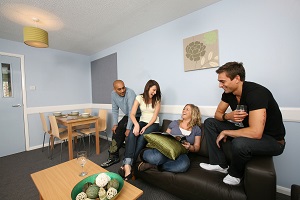Resident
A resident is an individual who uses a particular place as a residence on a permanent or long-term basis. A residence is typically a flat or a dwellinghouse.
A resident can be a tenant, i.e. someone who occupies a residence that they rent from a landlord, or they can own the freehold to the residence, i.e. they have the ‘title absolute’ of the property.
A resident can also be considered to be part of a ‘household’ which, according to the Household Projections: England prepared by the Department for Communities and Local Government, is defined in the 2011 Census as:
‘one person living alone; or a group of people (not necessarily related) living at the same address who share cooking facilities and share a living room or sitting room or dining area’.
The term ‘resident’ is also used to refer to citizens of countries, i.e. the ‘right of residence’, which affects whether or not an individual has the right to remain in the country, the obligation to pay tax, the right to medical care, and so on. In the UK, someone is classed as a resident if:
- They spend 183 or more days in the UK in a tax year.
- Their only home is in the UK (they must have owned, rented or lived in the home for at least 91 days in total), and within a tax year they spend at least 30 days there.
A resident differs from an occupier (or occupant) as this refers more widely to person/s and organisations who use any property for residential or commercial purposes.
NB The Explanatory Notes to the Draft Building Safety Bill, published by the Ministry of Housing, Communities & Local Government on 20 July 2020, defines a resident of a dwelling as: ‘…a person who lawfully resides there, regardless of tenure.’
It defines a resident engagement strategy as: '....the means by which those living in buildings covered by the new regulatory regime can get more involved in the decision-making in relation to the safety of their homes. It will set out the approach and the activities that the Accountable Person will undertake to deliver these opportunities for all residents to participate.'
A residents' panel is: 'A statutory committee to be set up by the Building Safety Regulator. The residents’ panel will be made up of residents and representatives/advocates of residents, and advise the Building Safety Regulator on strategy, policy, systems and guidance which will be of particular interest to residents of higher-risk buildings.'
[edit] Related articles on Designing Buildings Wiki
Featured articles and news
Moisture, fire safety and emerging trends in living walls
How wet is your wall?
Current policy explained and newly published consultation by the UK and Welsh Governments.
British architecture 1919–39. Book review.
Conservation of listed prefabs in Moseley.
Energy industry calls for urgent reform.
Heritage staff wellbeing at work survey.
A five minute introduction.
50th Golden anniversary ECA Edmundson apprentice award
Showcasing the very best electrotechnical and engineering services for half a century.
Welsh government consults on HRBs and reg changes
Seeking feedback on a new regulatory regime and a broad range of issues.
CIOB Client Guide (2nd edition) March 2025
Free download covering statutory dutyholder roles under the Building Safety Act and much more.
AI and automation in 3D modelling and spatial design
Can almost half of design development tasks be automated?
Minister quizzed, as responsibility transfers to MHCLG and BSR publishes new building control guidance.
UK environmental regulations reform 2025
Amid wider new approaches to ensure regulators and regulation support growth.
The maintenance challenge of tenements.
BSRIA Statutory Compliance Inspection Checklist
BG80/2025 now significantly updated to include requirements related to important changes in legislation.
Shortlist for the 2025 Roofscape Design Awards
Talent and innovation showcase announcement from the trussed rafter industry.
OpenUSD possibilities: Look before you leap
Being ready for the OpenUSD solutions set to transform architecture and design.
Global Asbestos Awareness Week 2025
Highlighting the continuing threat to trades persons.
Retrofit of Buildings, a CIOB Technical Publication
Now available in Arabic and Chinese as well as English.


























